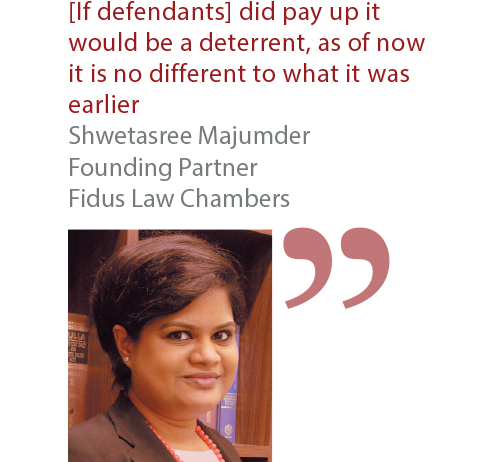Will punitive damages being awarded in India deter intellectual property infringement?
In October 2008, Delhi High Court put its stamp on an interesting settlement reached in a case of trademark infringement brought before it by Cadbury, which has been in India since 1948.
An individual who stood accused of infringing the company’s marks agreed to make good by contributing his “personal physical service” to a charitable institution in Delhi for five hours each week for six months. This was to be on top of punitive damages of ₹500,000 (US$7,500).
“The defendant said he couldn’t afford more and so we went to the court and said he should do public service,” recalls Chander Lall, founding partner of Singh & Singh Lall & Sethi, who acted for Cadbury.
Effective deterrent?
This case is unusual with respect to both the kind of penalty agreed to and the fact that damages were recovered. For while punitive damages for the infringement of intellectual property (IP) rights have been awarded in India for over a decade, rights owners rarely succeed in getting the money from the violators (see Are paper awards enough? page 33).
“If they did pay up it would be a deterrent, as of now it is no different to what it was earlier,” remarks Shwetasree Majumder, founding partner at Fidus Law Chambers.
You must be a
subscribersubscribersubscribersubscriber
to read this content, please
subscribesubscribesubscribesubscribe
today.
For group subscribers, please click here to access.
Interested in group subscription? Please contact us.




























